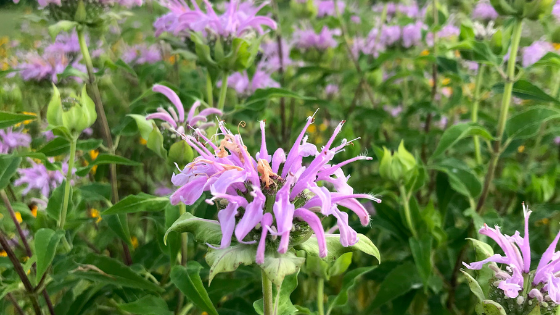 When the Warrings bought their Charles County farm in 2009, they set out to leave it better than they found it. Persistence Creek Farm demonstrates how their farming and forestry practices can benefit Maryland’s natural resources.
When the Warrings bought their Charles County farm in 2009, they set out to leave it better than they found it. Persistence Creek Farm demonstrates how their farming and forestry practices can benefit Maryland’s natural resources.
“We focus on caring for our soil, protecting water quality, and creating diverse wildlife habitat. Our practices aim to ensure long-term agricultural productivity, reduce nutrient run-off into the bay, invigorate oysters in local rivers, and create thriving ecosystems of wildlife,” the Warrings say. Along with farming the land, the family also harvest blue crabs and oysters.
The family takes its role as stewards of the land seriously. They annually rotate crops of corn, soybean and sorghum to sustain soil fertility. They use no-till or minimum tillage on all fields to reduce erosion and run-off. Cover crops are planted on all fields to protect soil microorganisms and improve soil health. Nutrient management plans and seasonal soil tests minimize fertilizer inputs, and maximize yields by tailoring a crop’s nutrient needs.
To enhance wildlife habitat and maintain productive forests, the Warrings have utilized technical guidance from a forester from the Maryland Department of Natural Resources. By following a custom forestry plan, thinning acres of forestland has increased timber growth rates for future harvests, while boosting biodiversity and providing wildlife with food and cover. “We have implemented timber stand improvement techniques that increase timber growth rates and improve wildlife habitat,” the family says.
Acres of shrubs, maple, pine and oak trees have been planted for streambank protection. Riparian herbaceous buffers that stretch 50 feet on each side of Ross Branch stream capture nutrients from crop fields, improve water quality, and provide nesting habitat for wildlife.
On their 242 acre farm, two acres of ponds and wetlands provide habitat for frogs, ducks, deer and other wildlife. Food plots of white clover, sunflowers, corn and soybeans are planted annually. Five acres of wildflowers and native grasses attract pollinators, such as Monarch butterflies.
In 2021, the Warrings and their farm won Maryland’s first Leopold Conservation Award for their conservation efforts. “We applied for the award because it meant we might have an opportunity to tell our story. We want to help the average community member understand how much farmers and watermen care about the environment,” the Warrings say.
Persistence Creek Farm’s enrollment into a perpetual conservation easement permanently preserves its future use for agriculture and forestry. “Sustainable practices aim to leave the land and water better off over the long run,” the family adds. “We were taught early on in life that you never really own land or water, but rather, you are a steward of land until passing it on to the next generation.”
Hungry for more? Create a pollinator-friendly garden. Read more about Maryland’s seafood and watermen. Learn more about Aldo Leopold and the Sand County Foundation that administers the award.
Sign up for our newsletter and find us on Facebook, Twitter and Instagram.

